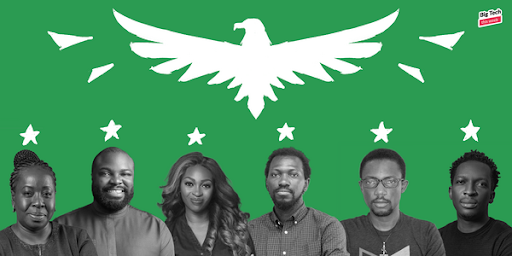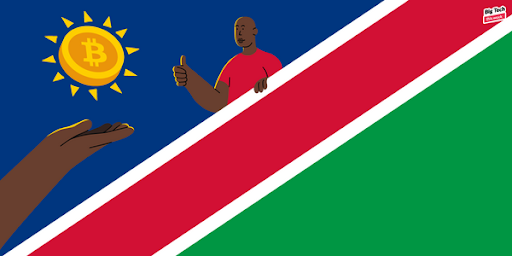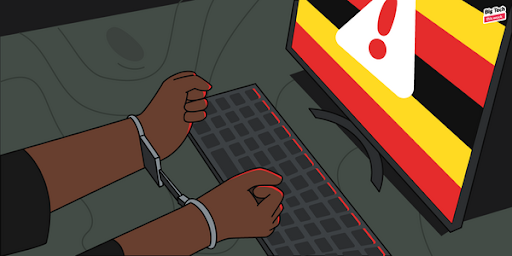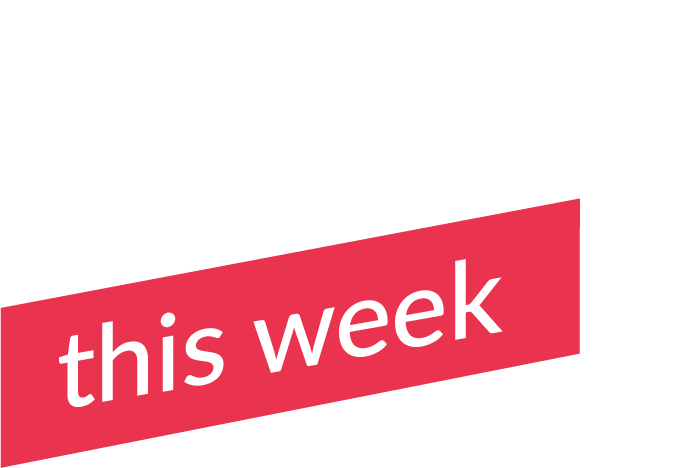Top of mind: Happy Sunday from Abuja!
Nigeria’s tech founders were crowned at this year’s National Honours for their contribution to the country’s development – not so shabby for a fledging ecosystem that’s literally pulled itself by the bootstraps.
Let’s get to it.
3 big things:
- Tech’s big win
- Uganda’s bad bill
- Namibia’s crypto rules
Nigerian tech founders win big

The short: Six notable Nigerian tech founders were among the 447 recipients of Nigeria’s National Awards conferred by President Buhari.
The six: MainOne CEO Funke Opeke, Flutterwave Founder/CEO Olugbenga Agboola, Andela co-founder Iyinoluwa Aboyeji, Paystack co-founders Shola Akinlade and Ezra Olubi were awarded the Order of the Niger (OON).
Tech investor Dr Ola Brown, founder of Flying Doctors Healthcare Investment (FDHIC,) received the Member of the Order of the Federal Republic (MFR) award.
Why it matters: It’s an excellent outlook to see young Nigerians in tech receive national honours – an almost exclusive reserve of the older and more entrenched political and business elite. Likewise, it’s a big moment for Nigeria’s “laptop-bearing” class to see their country finally recognize their wins.
A recap:
- 2020: Paystack was the first Nigerian startup to join Y Combinator. Stripe acquired Paystack for $200 million in 2020.
- 2020: Dr Ola Brown was an early investor in Paystack, exited after Stripe acquisition.
- 2021: Flutterwave reached unicorn status after raising $170m in a Series C round.
- 2021: Andela reached unicorn status after a $200m Series E raise by Japan’s Softbank Group.
- 2022: Equinix acquired MainOne for $320 million in its Africa-focused expansion.
But.. it feels like dissonance. The Nigerian government under the Buhari-led administration has been cruel to startups – from the proposed IT bill, ban on cryptocurrency, and closure of virtual accounts, among others. Indeed, it’s an honour for resilience.
Big picture: It seems that the “tech bros” (gender-neutral) have officially left the fringes and are here to stay. The recently passed startup bill by Nigeria’s Senate still awaits presidential assent. If approved by the President, it will codify the status of the Nigerian startup ecosystem and provide them with the necessary legal framework to engage.
Final thoughts: This award is symbolic in sealing the status of these tech leaders as respectable members of society and providing them with the access required to represent their community.
The six honourees went against all Nigerian odds to win the highest honour in the land. Not bad for a demographic styled as “lazy Nigerian youths” by the President who crowned them.
Namibia [kinda] adopts crypto

The short: Namibia becomes Africa’s latest crypto country.
Crypto-friendly: Namibia’s current stance is a turnaround from the Bank of Namibia (BoN) 2018 statement, strongly condemning the use of cryptocurrencies as a payment method for goods and services.
But this week, it updated its position on Virtual Assets (VA) and Virtual Assets Service Providers (VASPs).
BoN says:
The acceptance of VAs for the payment of goods and services remains at the discretion of any merchant and buyer willing to participate in such an exchange or trade agreement. However, BoN does not recognise using and accepting cryptocurrencies as legal tender in Namibia.
New policies: The Bank of Namibia included VAs and VASPs within its FinTech Innovations Regulatory Framework in an approach to ensure regulators keep up with the exponential growth in VAs. BoN also hinted at new pro-crypto policies to come in the future. Final thoughts: The anti-Crypto stance of many African countries is not surprising. Namibia’s on the right track, and I hope we get more nations on that lane soon.
Uganda’s suppressive Computer Misuse Bill

The short: President of Uganda Yoweri “M7” Museveni approved a new bill to regulate social media usage in the country.
History of suppression: This isn’t Uganda’s first rodeo. The government is famous for stifling free speech and access to information. For example, social critic and politician Stella Nyanzi was convicted twice for making critical comments about President Museveni online.
Similarly, after a series of tweets criticising President Museveni’s son, famed author Kakwenza Rukirabashaija was arrested and tortured.
Backlash: The bill is a step backwards for digital rights in the country. Thankfully, activists are kicking against this new bill.
Uganda is not new to regressive control of digital technologies. In 2018, the east African country introduced a tax through the Excise Duty (Amendment) Act that required users to pay a daily tax in order to access social media services. Uganda also routinely blocks access to the internet and social media.
– CIPESA
Final thoughts: Digital rights in Africa remain threatened. From Kenya’s proposed legislation to license IT talent, to Nigeria’s recurring efforts to regulate social media, it’s still a long road on this side of the continent.
That’s it for the week. I’d love to hear your thoughts about this week’s issue. Please respond to this email or find me on Twitter @fatuogwuche 🙂
Ps – do us a solid by sharing the newsletter with your network of tech enthusiasts. Invite them to join the party 🙂
See you next Sunday!

